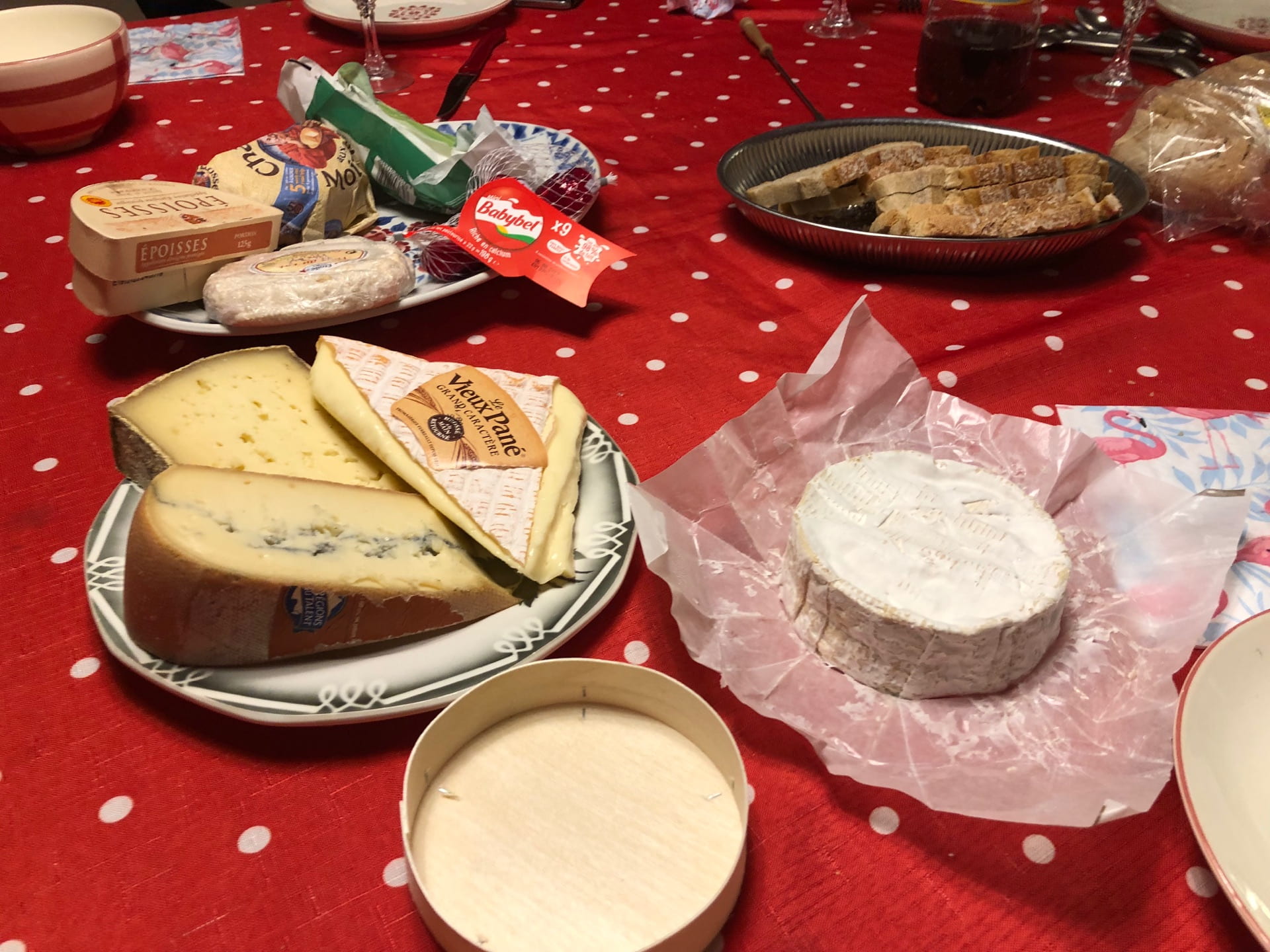
Honors biology and French double-major Duru Erkan recently returned to the States after spending a month living with a French family in Perpignan, who taught her how to do as the French do, starting with savoring cheese at every meal. From Emmental to Chèvre to Roquefort, Duru has tasted it all. Here, she brilliantly puts her new knowledge of the traditional French cheese course to work as a metaphor for her experience.
The traditionalist French person eats cheese after the main course of every meal. Assorted cheeses are served in a big plate accompanied by a basket of sliced bread and a bottle of dry wine. This delicacy is eaten in a particular order: the lightest, less scented cheeses are consumed first, and the powerful, malodorous cheeses are had last to be able to taste each one individually, without one suppressing the other. One might start the cheese course with Emmental—known to be quite mild and airy—then move on to Camembert—though it has a bold smell its flavor is moderate—next, snack on Chèvre—a tangy and aromatic cheese—and finish off with Roquefort—the sharpest and heaviest of cheeses. Then, dessert is served.

From the first day to the last, my relationship with my host family fortified in much the same way as the aroma of cheese intensifies through the cheese course. I started with a slice of light cheese the first week I stayed in the Barrau household. I felt like I was lodging in an AirBnB, my host mother was trying to teach me how to use the washing machine, and the two girls were still asking me questions about life in the U.S. Our conversations were casual and surface level. Then, I moved on to the more tasteful cheeses. I sampled the moderate delicacies by going to the beach with the Barraus, grocery shopping for the house and walking the dog with the two girls. By the end of my last week in France, I was devouring the hardest cheeses by the pound. After four weeks of warming up to one another, we were doing things that an authentic family would do: visiting the grandparents, going to graduation parties, third-wheeling the older sister’s dates, debating which Hollywood actor is the most attractive and singing along to the radio in the car. I was accepted into the
Barrau family as the oldest sister. On my last day in Perpignan, the drive to the bus station which would take me to the airport was tearful. I felt like I was truly leaving a part of my family behind. I had devoured my last slice of Roquefort, and I wasn’t ready to move on to dessert.
I chose to study abroad in Perpignan so I could undergo a full French immersion. Now, not only do I speak and comprehend the language better, but I have also learned an incredible amount about French culture. For example, one must kiss both cheeks of the person they are greeting, one must serve food to others before serving themselves and one must dress nice when going downtown. I also learned that table manners are a strong indication of character, grocery shopping is done religiously on Saturdays, spending time with the family comes before anything else and popcorn at the movie theater is a lot cheaper than it is in the U.S. I owe this knowledge to my host family. Having such a tight bond with them allowed me to observe their quotidian routine and the way they conduct themselves according to French tradition.

I strongly believe that a family-stay study abroad program is something every student should experience. Textbooks and classroom settings can only teach so much. One has to immerse him- or herself in a culture to learn fully what it has to offer. My advice to the upcoming study abroad students is that they need to try the powerful cheeses faster. While it is logical and traditional to eat the mild cheeses first, there is nothing wrong with tasting more varieties of the sharper cheeses rather than spending time with the lighter ones. The most enjoyable and unforgettable flavor will come from the Roquefort.
